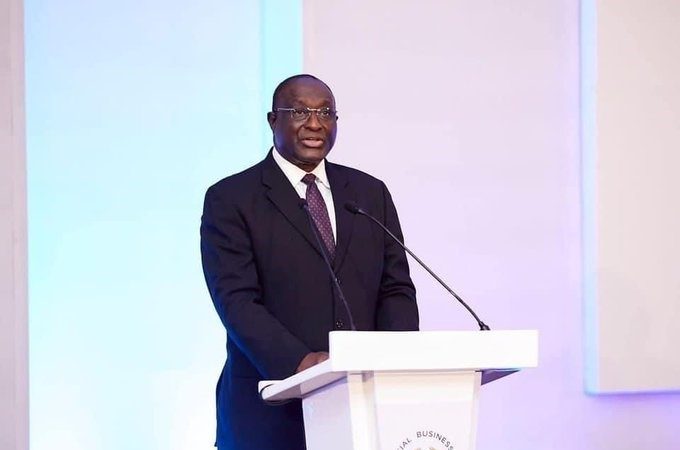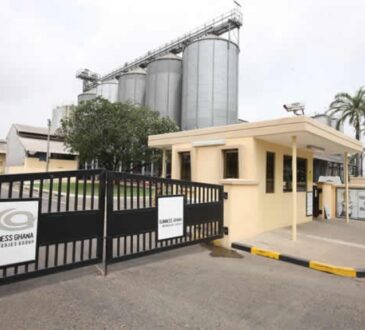
By Benson Afful
NPP Flagbearer-hopeful, John Alan Kwadwo Kyeremanten, says his future government will actively promote export value-added products as well as promote import substitution programmes under his Industrial Transformational Agenda in an attempt to control the volatility of the local currency for economy recovery.
The trade expert and industry who is credited with the current government’s ambitious One District One Factory policy, said he intends achieving this by way of providing needed incentives, such as tax rebates, financial support and pro-local industry trade policies, compliant with WTO and AfCFTA protocols.
He added that his government will facilitate the establishment of a national shipping line in collaboration with interested private sector operators to handle freight activities to save the country’s foreign exchange.
“Government will aggressively promote consumption of domestic products through public sensitisation and the use of pro-local industries trade policies to boost local production,” Mr Kyeremanten said.
He noted that Ghana’s economy has over the last sixty years been characterized by severe fluctuations in economic performance, reflecting structural vulnerabilities in the economy.
This, according to the frontrunner NPP flagbearer race, has denied the country of the much-needed stability and growth, critical for transforming the country from poverty to prosperity,
resulting in the recourse to the IMF on 17 different occasions since independence.
In 2017, the NPP government commenced the implementation of programmes and interventions aimed at restoring stability and spurring growth in the economy.
The pre-COVID-19 performance of the economy registered some impressive development outcomes, including achieving an average growth rate of 7%, a reasonably decent fiscal balance and a stable currency.
Regrettably, the combined effect of the COVID-19 Pandemic and the Russian-Ukraine war stampeded the country into a crisis of unprecedent proportions, with its negative impact on the economy, businesses and social life
Inflation as December 2022 was at an all-time high of 54.1%. The Cedi depreciated by over 30% in 2022; interest rate soured over 35%; and international reserves are at an all-time low of less than three weeks of import cover.
Speaking to industry captains in Accra at the Movenpick Ambassador Hotel, the leading member of the NPP who has been very key to developing trade policies for both current and previous NPP governments, believes Ghana’s struggling economy, is primarily because it is highly dependent on export commodities with little value addition.
Indeed, the 5.1% projected GDP growth for the Ghanaian economy for 2023 is based on the anticipated increase in global commodity prices Hon Kyerematen said, adding: “this is not a comfortable situation to be in. Under the circumstances, we have had to go back to the IMF for the 17th time although, we had promised never to go back.
“Fortunately, the IMF has approved a bailout package of US$3 billion to be disbursed in
tranches over the next three years. This package is primarily intended for both balance
of payment and budget support.
“One of the lessons that we have learnt from these recent developments is that Ghana’s
economy is still fragile, vulnerable and susceptible to both external and domestic
shocks”.
Inflation:
On inflation, Alan said the Bank of Ghana will conduct a comprehensive review of the Inflation Targeting (IT) framework, with inputs from academia, think tanks and CSOs.
He stressed that the review should involve assessment of the effectiveness of the IT policy and the best way to deploy it to avoid imposing an unjustifiably-prohibitive interest rate structure on the economy.
The five percent ceiling on monetary financing of the budget in the Bank of Ghana Act, he said will be strictly enforced to reduce the associated demand pressures that fuel inflation.







